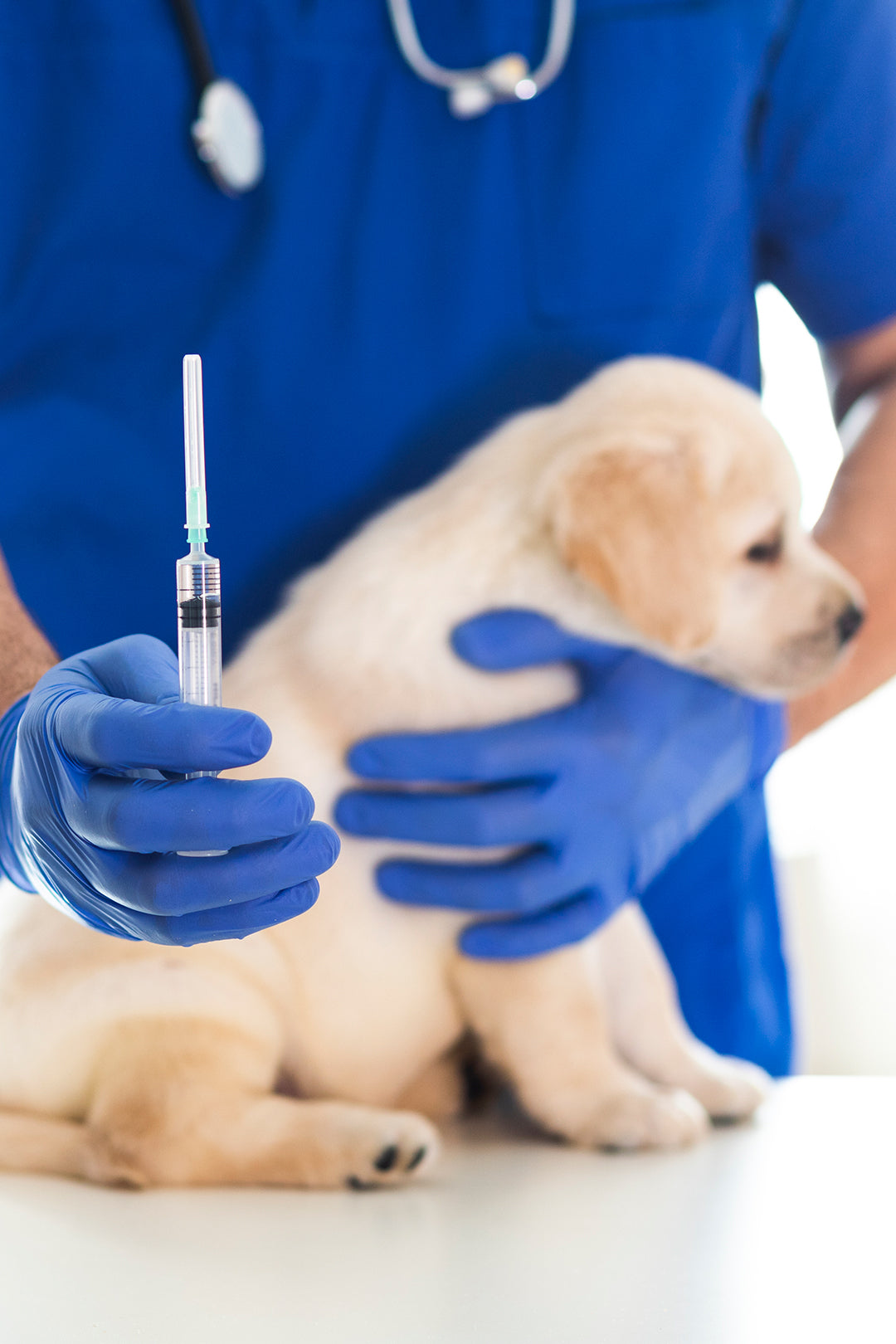Pet Parents, We've Got You Covered
Get answers to your pet health questions
Get answers to your pet health questions


The answer to this question is often misunderstood because at first, the answer may seem counterintuitive, but it’s actually quite simple.
A puppy or kitten is born with immunity that develops from its mother in utero and its mother’s milk. This is called maternal or “passive” immunity and usually lasts up to about eight weeks of age. As this immunity wanes, the puppy or kitten begins to become vulnerable to infectious life-threatening diseases like parvo and distemper. So, at around eight weeks of age, the first vaccine is given, and the pup’s or kitten’s immune systems go on red alert to fight the antigens (virus particles) in the shot.
Now, here’s the important part and the answer to the question.
In order for the puppy or kitten to develop long-term immunity to the illness, their immune system must “remember” the virus and know to go on red alert and destroy it if it encounters it again. This is what happens when the booster shot is given.
So, why is a third shot often given for the same illnesses? This has to do with the timing between the “red alert” from the first shot and the period right after that first shot when the immune system will be ready to “re-meet” the virus and remember it.
It’s not really possible to know exactly when a puppy’s or kitten’s immune system is ready for the second injection, but there are many factors that might go into this, including the mother’s immune system, the young one’s overall health, living conditions, breed, individual hardiness, etc. So, veterinarians recommend the initial vaccine at eight weeks of age and then two booster shots at 12 and 16 weeks to hit that ideal time when the immune system will create “memory cells,” resulting in long-term immunity.
What if my pet is vaccinated too early or late?
If the young ones are revaccinated too soon, their working immune systems will just kill the viruses in the shots without creating “memory.” If they are vaccinated too late, the immune system will have forgotten that it ever encountered the virus, and the immune system will just react like this was the first time, again with no long-term memory or immunity.
So, the two additional “booster” vaccinations don’t boost the immunity each time, they simply allow the immune system to arrive at full immunity through specifically timed and controlled meetings with the virus.
Meet with your vet to determine the best time for your puppy or kitten to receive the proper vaccinations they need to stay healthy as they grow up and mature. And once they are old enough, make sure to keep them safe from diseases or illnesses transmitted from fleas and ticks with PetArmor®.